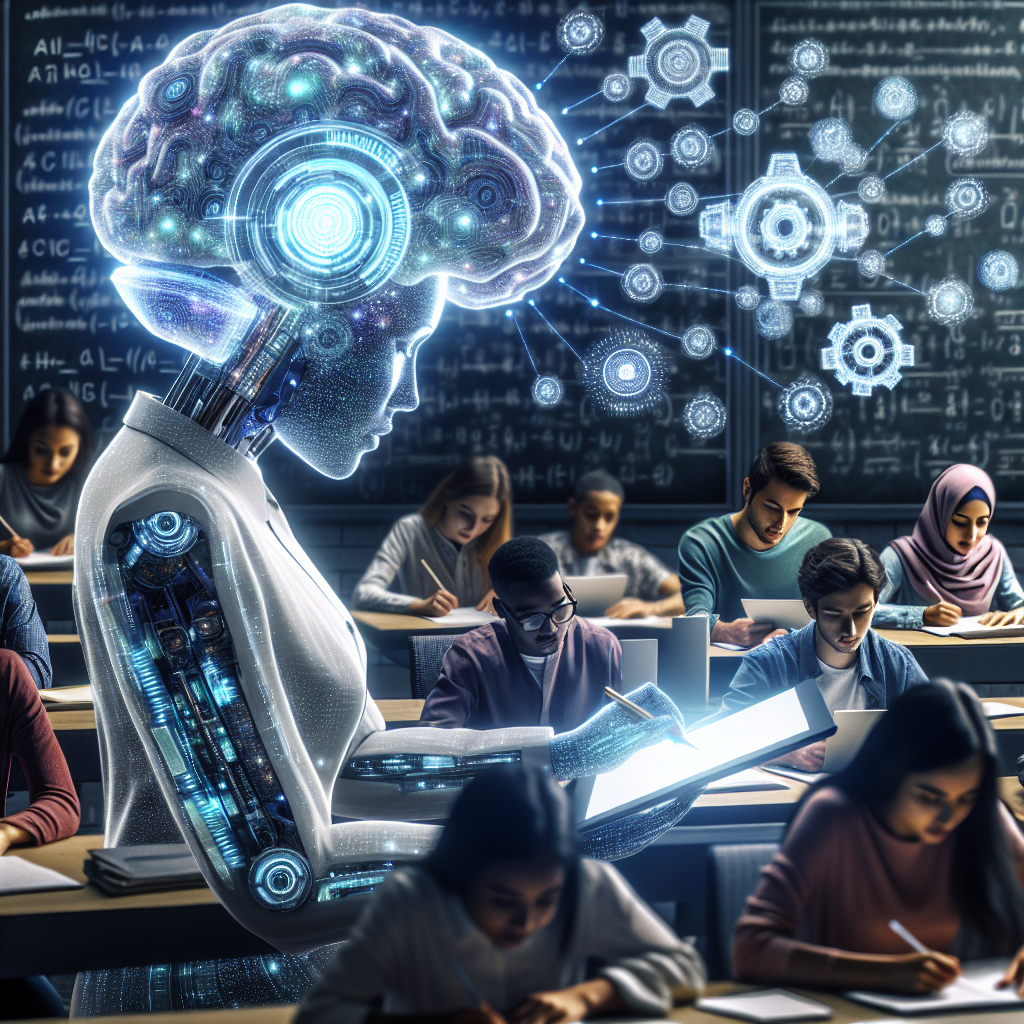AI in the Classroom: How ChatGPT Could Transform Grading in Engineering Education

AI in the Classroom: How ChatGPT Could Transform Grading in Engineering Education
In a world where artificial intelligence (AI) continues to weave its way into various sectors, education is no exception. Imagine a classroom where a tireless assistant helps grade hundreds of engineering student quizzes accurately and consistently, providing feedback faster than you can say “final exam.” Recent research by a team of academics is exploring the feasibility of exactly that—using large language models (LLMs) like ChatGPT to grade conceptual questions, particularly in the challenging field of mechanical engineering. But how effective is this digital teacher’s assistant, really?
Welcome to a deep dive into this fascinating study, which breaks new ground in automated grading and suggests how AI might revolutionize education.
Why Automated Grading Matters
Picture this: Professor Smith is in charge of an enormous mechanical engineering class with over 200 students. Each week, she and her teaching assistants (TAs) struggle to grade quizzes filled with open-ended conceptual questions. Not only is this time-consuming, but it’s also inconsistent because different TAs might interpret answers differently despite having the same rubric.
Wouldn’t it be fantastic if a trusty AI could lend a helping hand, bringing consistency and efficiency to this arduous task? Well, it might not be as far-fetched as it sounds, thanks to the enthralling conclusions of a study published at Texas A&M University.
Grading: Humans vs. Machines
The research team explored the proverbial battle of brains between human TAs and GPT-4o, a variant of ChatGPT. They tested both on ten quiz problems from an undergraduate mechanical engineering course, where each question was answered by around 225 students. Both sides were armed with the same weapon—a grading rubric provided by the course instructor.
Behind the Scenes: The Metrics
In the academic arena, success isn’t just about who can mark fastest; it’s also about accuracy and consistency. Here, Spearman’s rank correlation coefficient and Root Mean Square Error (RMSE) come into play. These are essentially fancy ways to check if both humans and machines rate students similarly and with how much discrepancy.
So, how did our digital grader perform? Impressively, in zero-shot tests (meaning the AI wasn’t given prior examples), ChatGPT showed a strong correlation with the human graders in most cases. However, the AI model stumbled on questions requiring highly nuanced interpretations, often acting like that one always-by-the-book teacher who grades strictly according to the rubric—even when synonyms are involved, but these synonyms aren’t mentioned directly in the rubric.
From Theory to Practice
This study isn’t just an intellectual exercise. It can potentially lead to real-world educational transformations:
- Scalability: Large classes become easier to manage, allowing educators to focus on teaching rather than grading.
- Consistency: Say goodbye to the ‘lucky TA’ phenomenon, where some students get easier graders.
- Rapid Feedback: Students can receive instant feedback, greatly enhancing the learning experience.
Challenges and Considerations
However, not all is smooth sailing on the AI ocean. The model tends to be more stringent than human graders, and it’s sometimes befuddled by the ‘art’ of interpretation—an area where it lacks the nuance that a human might offer when encountering creative or partially correct answers.
The Future and Beyond
The study has laid the groundwork, but now comes the question: “What’s next?” Future efforts will focus on refining grading rubrics and adapting the AI model to better interpret the complexities of student responses. Expanding datasets and question types will also play a crucial role in improving accuracy.
Moreover, educators could leverage improved models that incorporate domain-specific knowledge to fine-tune AI for specific fields—imagine a GPT-Engineering or GPT-Literature!
Key Takeaways: AI Grading for Everyone
- Efficiency Boost: ChatGPT shows potential to drastically reduce grading time, especially in large classrooms.
- Quality Consistency: With clear rubrics, AI can deliver consistent grading, potentially removing biases inherent in human grading.
- Learning Enhancement: Instant feedback allows students to refine their understanding of complex engineering concepts more quickly.
- Room for Improvement: While promising, AI models like GPT-4o require continuous development to handle ambiguous and nuanced answers better.
This exploration into AI-powered grading is just the beginning of what could be a game-changer for education. Educators and institutions willing to harness the power of AI may soon find their jobs are a bit easier—and their students a bit happier.
As we continue to innovate, tools like ChatGPT hold the promise of not just keeping up with the future, but helping to define it.
This peek into automated grading unveils the potential for AI to become a staple in classrooms worldwide. As discussions around education equity and quality gain momentum, automated grading presents an exciting frontier to explore—the real exam is just beginning.
If you are looking to improve your prompting skills and haven’t already, check out our free Advanced Prompt Engineering course.
This blog post is based on the research article “Towards Scalable Automated Grading: Leveraging Large Language Models for Conceptual Question Evaluation in Engineering” by Authors: Rujun Gao, Xiaosu Guo, Xiaodi Li, Arun Balajiee Lekshmi Narayanan, Naveen Thomas, Arun R. Srinivasa. You can find the original article here.




